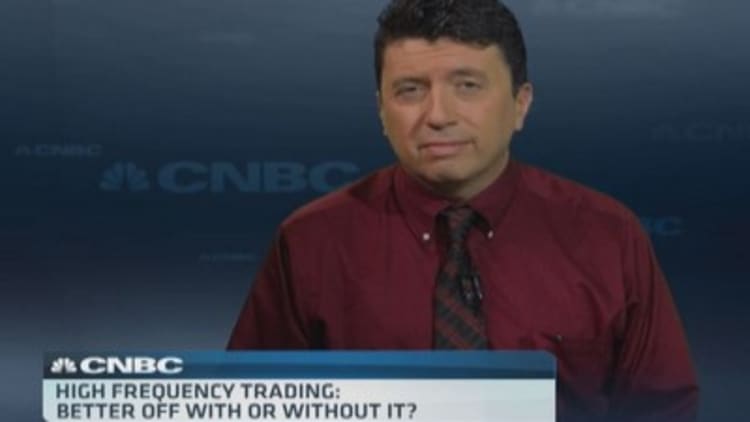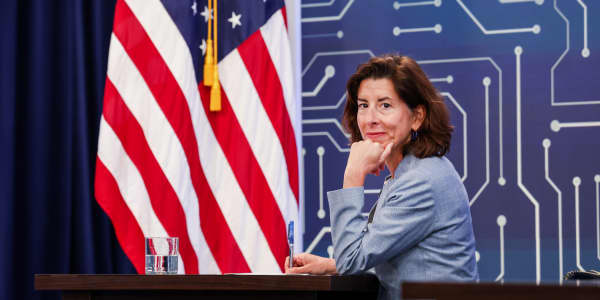Michael Lewis may have sparked outrage that the markets are rigged with his indictment of high frequency trading in "Flash Boys," but the head of one of the largest retail brokerages isn't concerned.
"The retail investor today has it better off then they've ever had it in history," Fred Tomczyk, president and CEO of TD Ameritrade, said Monday during a panel discussion on securities trading at the Milken Institute's Global Conference in Los Angeles.
"There's a lot of noise around Michael Lewis' book. We have 6.1 million customers, but we've had 70 phone calls and 120 emails since that book caused all that emotion," he added.

Read MoreShould regular investors care about high-speed trading?
Tomczyk cited dramatically lower trading costs and faster order execution for individual investors as proof of the better retail trading environment.
"From our perspective this is much more of a Wall Street issue than a Main Street issue," he added.
Lewis' book profiled IEX, a platform aimed at beating the new age of high-speed computer trading on Wall Street. Lewis himself sparked a furor by insisting in interviews, including one on CNBC, that the stock market is rigged because of the trading machines.
Read MoreThink the 'Flash Boys' are taking over? Think again
Tomczyk did say that some confidence issues have come up in the past, like the May 2010 "Flash Cash" or botched initial public offerings. But he noted that that both problems are being addressed, for instance with new limits on how far a stock can gain or lose in a short amount of time before trading is halted.
"It's not caused by Michael Lewis' book," he said in reference to problems of market confidence. "The retail investor doesn't really understand how the market works but when you have an event, it destroys confidence. That's where they get upset."
—By CNBC's Lawrence Delevingne.






